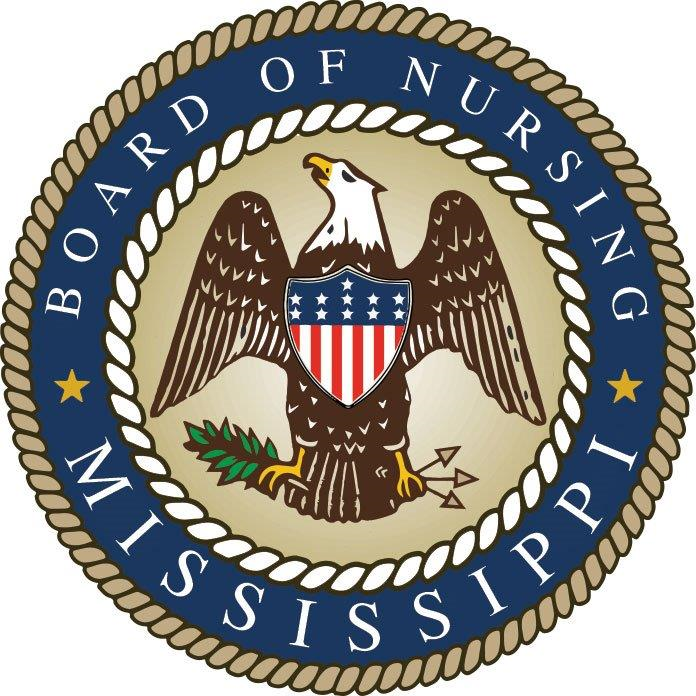Frequently Asked Questions
Questions include educational programs, licensing, and scope of practice.
|
1. Does the Board regulate and approve nursing programs? |
The Board of Nursing is a consumer protection agency with the authority to regulate the practice of nursing through licensure as provided for by the Mississippi Nursing Practice Law. Registered nurse programs are accredited and regulated by the Institutions of Higher Learning (www.ihl.state.ms.us). LPN programs are approved and regulated by the Mississippi Board for Community Colleges. As of July 1, 2019, the practical nursing programs are accredited by the Mississippi Board of Nursing. |
|
2. Is a graduate nurse allowed to identify themselves as a licensed nurse (RN or LPN)? |
No. New graduates may only sign off on paperwork using the initials to signify they are a graduate nurse (i.e. G.N.). Signing as a R.N. or L.P.N. is only allowed when a license is obtained as those legal credentials have title protection afforded by law. |
|
3. What content should and should not be included during orientation for new graduates? |
The Mississippi Board of Nursing does not mandate the content/curriculum for graduate student orientation. |
|
4. How do I apply for licensure in Mississippi if I currently hold an RN or LPN license from another state that is not Compact? |
You will need to apply for a Mississippi license by endorsement if you have never held a Mississippi license. If you have held a Mississippi license at some point, you will need to apply by reinstatement. The endorsement and reinstatement applications can be downloaded from the Applications section of the Mississippi Board of Nursing website at www.msbn.ms.gov/licensure/applications-and-forms. The steps for the endorsement and reinstatement processes are outlined in the application. |
|
5. How many days or hours do I need to work in order to maintain an active nursing license? |
The Board does not mandate the number of hours or days per year that you must work to maintain an active license. However, if you have not performed nursing in five (5) years or longer you will be required to take a refresher course. |
|
6. What nursing services can be provided if my license is inactive? |
Pursuant to the Mississippi Board of Nursing Rules and 30 Miss. Admin. Code, Part 2810, Chapter 4, Rule 4.5, inactive licensure means that you are not engaged in the active practice of nursing but desire to maintain licensure. Any person practicing as an RN or LPN during the time the nurse holds inactive licensure shall be considered to be practicing illegally and shall be subject to disciplinary action by the Board. |
Temporary Permits for New Graduates |
|
|
7.a. Are temporary permits issued for new graduates before a license has been issued? |
In accordance with the Nurse Practice Law, the board may issue a temporary permit to practice nursing to a graduate of an approved school of nursing pending the results of the first licensing examination in Mississippi, and to a qualified applicant from another state, territory or possession of the United States, or District of Columbia, or pending licensure procedures as provided for elsewhere in this article. The fee shall not exceed Twenty-five Dollars ($25.00). (Temporary permits are issued for 90 days from the date of issuance/approval. See temporary permits for New Graduates under Licensure and Practice). |
|
7.b. What is the scope of practice for the graduate nurse? Can a graduate nurse perform the same functions of a licensed nurse before he/she is actually licensed? |
Issuing a temporary permit to a New Graduate allows that New Graduate to practice within their respective education and training. The scope of practice of a RN new graduate is that of a RN; the scope of practice of a LPN new graduate is that of a LPN. In addition, Healthcare employers within our State as well as national stakeholders have recommended the following restrictions for New Graduate assignments (this is not an all inclusive list as facilities may implement other restrictions until the Graduate Nurse becomes an RN or LPN):
|
